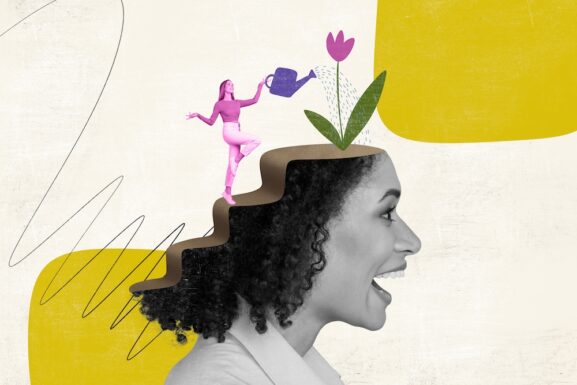Brain Damage From Alcohol May Be Reversed By Using Magic Mushrooms, Per Study
Can magic mushrooms really reverse brain damage from alcohol? Per a new study, there may be a connection between magic mushrooms and the part of the brain controlling alcohol cravings. This only increases optimism that the psychedelic may produce positive effects.
We highlight what this means in the present and future for those struggling with chronic brain damage from alcohol.
Interested in joining a Psychedelics Clinical Trial? Sign up here now and we will connect you with a clinical trial in your area when one becomes available.
What Are Magic Mushrooms?
The active psychedelic ingredient that makes magic mushrooms so magical is psilocybin. Researchers continue to study its therapeutic potential. In fact, there’s support claiming it helps everything from anxiety and depression to addiction and PTSD.
This occurs by binding to the receptors of serotonin — the so-called happiness hormone.
According to Dr. Ben Medrano, “The mechanism that makes psilocybin effective is that it predominantly binds 5HT2A — which is a serotonin subtype. That binding leads to increased neuronal excitation, neuroplasticity, cortical expansion, novel interconnectivity, environmental sensitivity and thus new ways of perceiving and understanding. I always summarize this as creative thought and sense experience that leads to reframing of difficult experiences (past and current.)”
With tobacco addiction, studies show that the cessation rate substantially exceeds rates commonly reported for other behavioral and/or pharmacological therapies. This really is incredible news, as it showcases the potential alternative way of weaning off drugs to current medication.
Psilocybin is the first among psychedelics to actually become decriminalized in certain U.S. states, with approved therapies for treatment-resistant depression. They need to be performed under strict guidelines, but these treatments pave the way for the further use of psychedelics in the medical field.
RELATED: I Read Every Neuroscience Study On Psychedelics Published Since 2017. Here’s What I Learned
What Is Alcoholism?
Also known as Alcohol Use Disorder (AUD), alcoholism is a mental health disorder which occurs when excessive drinking leads to distress and harm. Symptoms range from mild to severe, with the disorder gradually worsening without any treatment.
AUD usually shows up as strong alcohol cravings which lead to a complete loss of control combined with a negative and anxious emotional state when being deprived of a drink. Most people develop a high tolerance level for booze, which, long-term, may cause brain damage from alcohol.
The problem usually develops throughout the day as the drinks pile on, and the alcohol content in their bloodstream increases. The connection between alcoholism and violence is pretty strong too, as scientists repeatedly showcase the dangers. And it seems to be a two-way street: Alcohol consumption may promote aggressiveness, but victimization may lead to excessive alcohol consumption.
This often shows up with those battling AUD, and it’s one of the symptoms that’s not only dangerous and harmful for them, but for the ones living with them and interacting with them on the daily as well.
RELATED: Hippie Flipping – What Is It, And Is It Safe?
How Does Brain Damage From Alcohol Occur?
Alcohol affects the body very quickly. It enters the bloodstream through the lining of the stomach and spreads to all cells and tissue. Effects of alcohol typically begin within 10 minutes.
Alcohol is metabolized through the liver. On average, it can process one ounce every hour. Intoxication occurs when your liver simply cannot process the amount of alcohol in your system, and excessive drinking overtime lowers its function, leading to disease.
The most common diseases include the following.
- Fatty Liver. Also known as hepatic steatosis, it shows up as excessive buildup of fat in the liver which makes it larger and inflamed. This is typically the earliest stage of alcohol-related liver disease.
- Alcoholic Hepatitis. Severe inflammation of the liver which makes it swell, destroying and killing liver cells. Although ranging from moderate to severe, hepatitis can be a life-threatening disease if left untreated.
- Cirrhosis. The late stage of scarring (fibrosis) of the liver which destroys cells and leads to loss of functionality. It’s an extremely serious condition which can lead to fatal liver failure or liver cancer.
Brain damage from alcohol might be secondary, but it’s much more serious.
Alcohol interferes with the brain’s communication pathways, making your reaction time slower, as well as affecting your memory, coordination, and the way you process information. It also stimulates euphoria and excitement, which can lead to confusion, violence, inability to control your body, and in severe cases stupor, coma, and even death.
Long-term, heavy drinking can cause severe alterations in the neurons, even reducing them in their size. It can also lead to blackouts. These gaps in a person’s memory prevent the transferring of memories from short-term to long-term storage (memory consolidation).
RELATED: How Much Shrooms Should A Beginner Take?
How Magic Mushrooms May Impact Brain Damage From Alcohol
This new study from the journal Science Advances shows the connection between psilocybin and alcoholism and how they interact in the brain. Using rats, the study focuses on the “mGluR2” glutamate receptor in the brain — which excessive alcohol use damages.
After intoxicating them to induce brain damage from alcohol, the rats were split into three groups. One received a low dose of psilocybin, the other a high dose, and the third was the control group.
Both groups given psilocybin had their mGluR2 glutamate receptor regenerated. This led to a severe reduction of further addictive behavior. It also creates optimism that future studies in humans will produce similar results.
Both Mydecine and Johns Hopkins University are currently working together on research into psychedelic therapies and addiction. Their focus is on cigarette cessation in tobacco smokers, but with this new study coming into light, the researchers are hoping alcohol is the next in line.
Studies for psychedelics to treat mental health disorders continue. As research and funding becomes more available, studies may mirror the above relating to brain damage from alcohol.
This study is just one of the latest which emerged with such amazing results, all building a case for the approval of their use as alternative treatment methods in those disorders and illnesses which leave many people feeling helpless.
Today’s approved treatments for addiction, anxiety, depression, PTSD, eating disorders, and other mental health issues, aren’t always working. In case, the majority of people don’t seem to find them helpful. Psychedelics could really be the non-invasive solution everyone is hoping for.




Miguel Keating
January 5, 2022 at 7:02 pmI am a user of psicadelics, and love learn new cientific studies about
Dray Monique
January 13, 2022 at 1:36 pmHow to use it and the name of the mushroom. Where to buy?